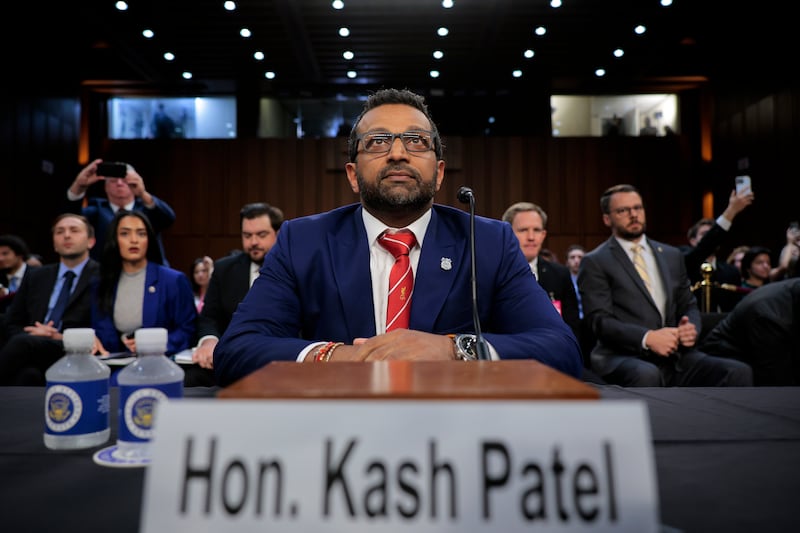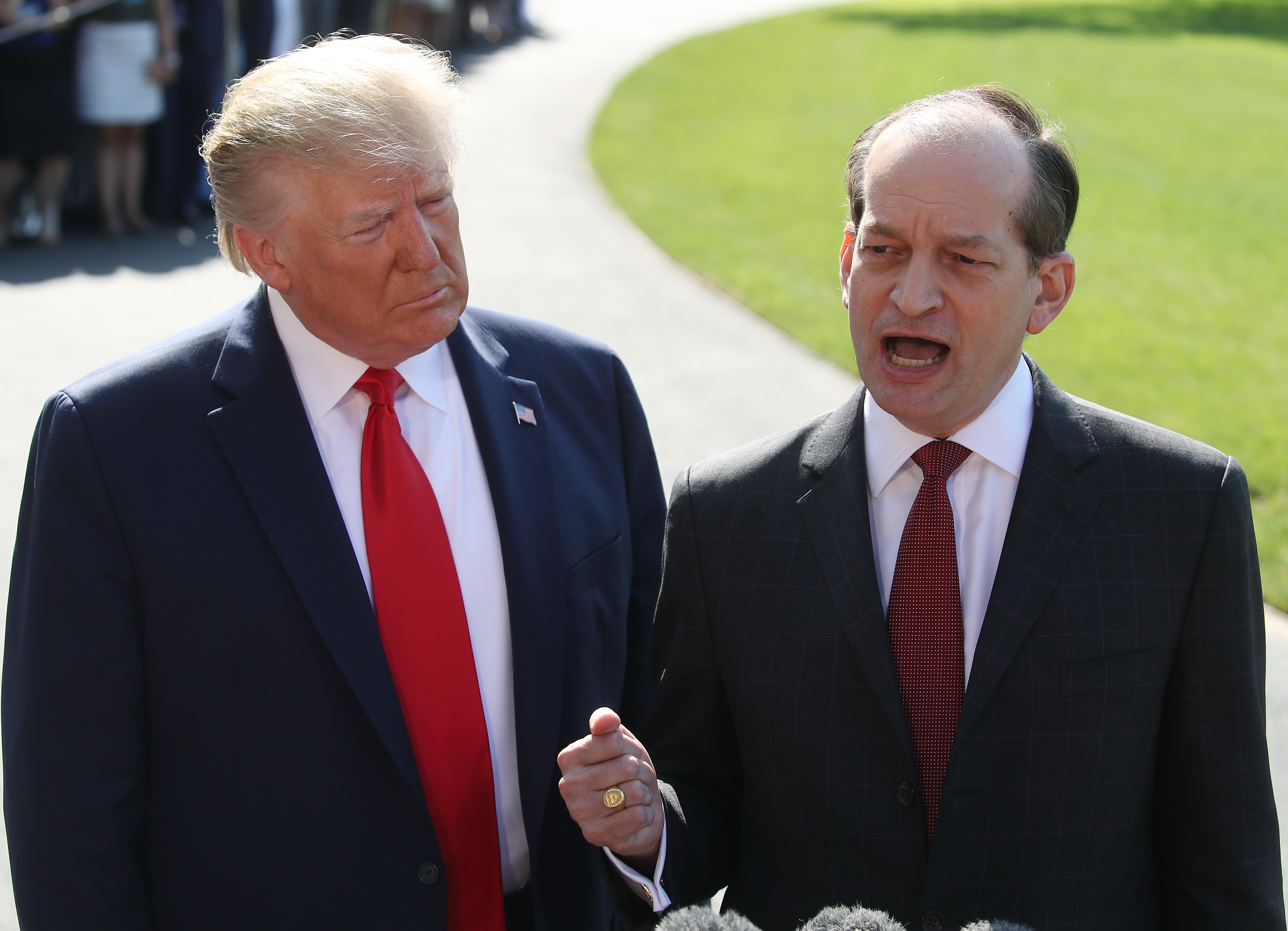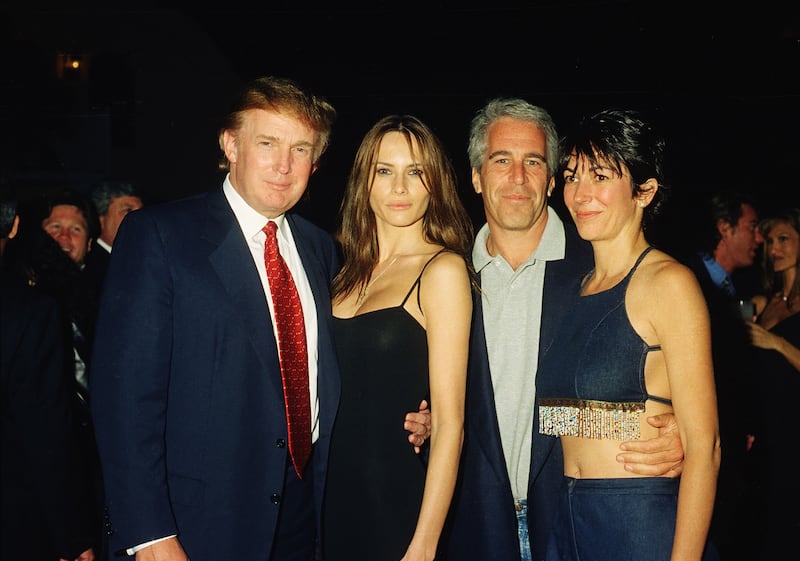FBI Director Kash Patel threw former U.S. Attorney Alex Acosta under the bus for the handling of convicted sex offender Jeffrey Epstein’s case and became defensive as he faced heat on Tuesday over the botched release of documents.
Patel appeared on Capitol Hill to testify before the Senate Judiciary Committee for the first time since his confirmation in January.
In anticipation of being grilled about Epstein, the FBI director addressed the Epstein crisis during his opening remarks.
“I know that there’s a lot of talk about Epstein, and I’m here to testify that the original sin in the Epstein case was the way it was initially brought by Mr. Acosta back in 2006,” Patel read.

The FBI director blasted the limited search warrants and claimed that investigators did not take as much material as they should have seized.
“If I were the FBI director then, it wouldn’t have happened,” Patel declared.
He said that in 2008, Acosta allowed Epstein to enter into a non-prosecution agreement, which prohibited anyone from ever seeing the material again without court permission as well as block future prosecutions.
Despite slamming Acosta, who went on to become Donald Trump’s labor secretary during his first term, Patel argued that the FBI, at the direction of Trump, has turned over information it has been legally able to do so and will continue to work with Congress.
Acosta is set to appear before a House panel to testify about the Epstein case later this week. He approved the 2008 deal that allowed the disgraced financier to avoid hefty federal charges and instead plead guilty to Florida state charges of soliciting a prostitute.

Despite the president campaigning on the release of files and early indications by the administration that it would follow through, the Justice Department and FBI instead released an unsigned July memo stating there was no so-called client list.
When pressed about that memo, Patel became immediately combative.
Ranking member Dick Durbin asked Patel why the memo, which indicated there would be no further prosecutions or files released, was unsigned.
“Would you’ve preferred I used autopen?” the FBI director shot back with a smirk.
Durbin appeared confused at the defensive response and repeated, asking why it was unsigned.
Patel said the memo had the insignia of the Department of Justice and the FBI. He claimed they were trying to get transparency for the American people and accused the last three administrations of not doing so. He did not mention that included the first Trump administration.
“We conducted an exhaustive search of everything related to the Epstein cases, and we produced what was legally and permissible able to be produced to Congress.”
The Justice Department has only recently started turning over Epstein files to Congress in response to a subpoena from the House Oversight Committee.

Durbin cut off Patel’s increasingly defensive response to ask him if he personally directed the investigation to review Epstein documents for any reference to Trump, a known Epstein associate, who has been facing mounting questions over their relationship.
Patel claimed Durbin had cited reporting that was “baseless.” The FBI director argued they conducted an investigation of the Epstein case files at the direction of the president to provide all “credible” information. He was specific to say the FBI was working with Congress to turn over “all documents we can.”
When pressed on who took the lead on drafting the memo essentially declaring the case close on Epstein and indicating no more information would be released, Patel evaded answering directly. He said Attorney General Pam Bondi led the Justice Department, and he led the FBI.
It was not just Democrats who brought up the Epstein case. Senator John Kennedy also questioned Patel over the case when it was his turn to ask questions.
Patel told him that he had not reviewed all the Epstein files but had seen a “good amount.”
“Who else did he traffic these young women to?” Kennedy asked the FBI director about Epstein.
Patel went back to criticizing Acosta for limiting the investigation with the 2008 deal. He said it limited what they could speak publicly about.
“You’ve seen most of the files, who if anyone did Epstein traffic these young women to besides himself?” Kennedy cut in.
“Himself. There is no credible information. None. If there were, I would bring the case yesterday, that he trafficked to other individuals,” Patel insisted.
He repeated however, despite a report that the administration had some 100,000 pages of Epstein documents, that the information they have is “limited.”
Kennedy asked him to clarify that there was no one. The FBI director confirmed that was what he was saying based on the case files the FBI has.
The senator pressed Patel over the release of documents in response to the House subpoena.
The FBI director said they were releasing “as much as we can” but insisted they were “limited by different court orders.”
In an effort to get the Epstein crisis back under control, the Justice Department sought permission to release grand jury testimony, but in every case, judges rejected their efforts, noting that the grand jury testimony was limited and nearly all already public, whereas the Justice Department had other material that was not grand jury testimony.
Patel on Tuesday suggested the administration would release everything it could legally, but he did not commit to releasing all documents.
“This is not going to go away,” Kennedy warned pointing that the American people want to know about those other than Epstein who abused the young women. “I think you’re going to have to do more to satisfy the American people’s understandable curiosity in that regard.”
Patel responded by slamming the Obama and Biden administrations for not releasing information while touting the first Trump administration renewing charges against Epstein.
“I know it’s a little complicated to understand, but what exists in the Epstein case files was a direct result of the limited search warrants, from 2006 and 2007, which hamstrung future investigations because of the non-prosecution agreement,” the FBI director insisted.
“I am not saying that others were not trafficked and others were not involved,” Patel said.
He claimed they have released “all credible information” and argued that the information not released so far was that which was “not credible.”
Patel acknowledged his response was not going to satisfy a lot of people, but he argued if they wanted the investigation done right, then Epstein should not have been given a “get out of jail free card” when he was.
The post Keystone Kash Throws Acosta Under Bus For Epstein Blunders appeared first on The Daily Beast.




